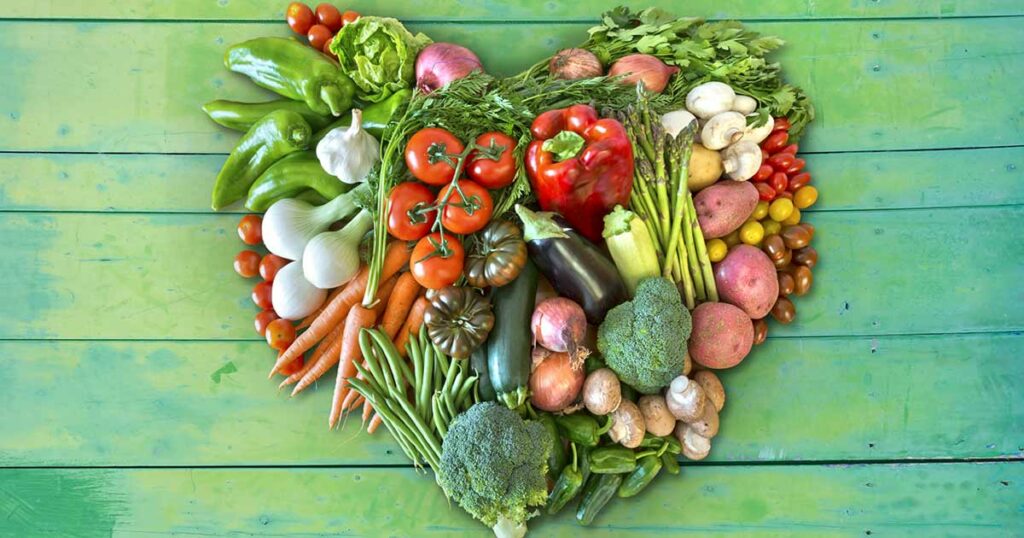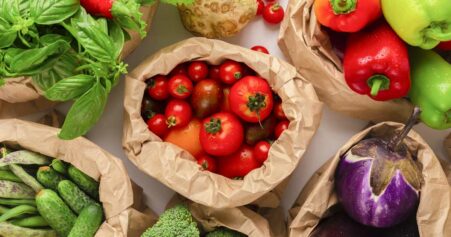Table of Contents
What are the reasons for being vegan?
The vegan diet growing in popularity. But why are more and more people deciding to go vegan? Reason number 1: It can prevent a lot of animal suffering. But habits are strong. Most people have grown up with animals on their plates several times a week or even every day. This can make it difficult to break new ground, and love for animals can be forgotten when it comes to food.
Before making the switch to a vegan diet, you may be concerned about the potential drawbacks of it. In particular, a healthy transition may seem expensive. If you are still struggling to make the switch, whether out of habit or health concerns, here are 10 good reasons to be vegan.
Reason 1: Animal Welfare
The main reason to be vegan is the love for animals. Those interested in a vegan diet do not want a feeling being killed and tortured.
In order to satisfy the great hunger for products of animal origin in industrialized countries, animals “live” in confined spaces (a pig has 0.75 square meters of space according to the minimum legal requirements in Germany) (BMEL, 2019). Painful practices are common before and during slaughter. In some cases, animals are transported for hours at a time through large parts of the country and across national borders, crammed together and without adequate water. They rarely see daylight or fresh air.
Regardless of the type of farming and the specifications: As long as the consumption of products of animal origin remains as high as it has been, animals cannot be kept in a way that is truly good for them. Moreover, killing animals contradicts the value that no living being should be exploited.
Whoever eats a vegan diet is fighting against the torture of animals and for the protection of animals. The following reasons for a vegan diet show that this is possible.
Reason 2: Empathy
Most people would claim to be empathetic and compassionate. For our “pets” this is usually true. But when it comes to other animals, or what ends up on our plates, the love for animals stops. Melanie Joy calls this phenomenon “carnism”: that is, the consumption of certain types of animals is judged to be ethically justifiable and appropriate. The actual values of animal love are only applied to certain types of animals and situations (Joy, 2013). This can lead to cognitive dissonance, especially when confronted with vegans. Then, meat-eaters realize that they are acting contrary to their beliefs about being an animal lover.
Vegans live in harmony with their values and standards. Vegans are often more compassionate towards their fellow human beings and our planet; they care about social behavior, sustainability, and environmental protection. They also pass this on to (their) children, thus contributing to a peaceful future for our planet.
Reason 3: New Taste Experiences
About 20 years ago, a vegan diet was associated with real deprivation, and 50 years ago you probably had to eat a rather one-sided and for many “boring” diet. Today, this is not the case anymore.
If you start to be vegan and browse through the “vegan scene”, a whole new world opens up to you in the kitchen. You will try beans, vegetables and grains that were previously unknown. There are all kinds of vegan dairy substitutes, and tofu is no longer the bland “sponge”, gut is sold in many marinades. However, thanks to thousands of recipes, plain tofu itself can be further processed into delicious burgers, quiches, curries, casseroles, fillings, pies, and so on.
Numerous recipes can be found on the Internet and in cookbooks. This allows the ambitious (amateur) chef to be creative, but even the cook muffle does not have to sacrifice taste. Carrot salmon, grain burgers, chickpea pizza: most people on a mixed diet have not tried these yet. Many dishes are quick and easy to prepare, there are more and more good convenience foods, and the range of substitutes is growing rapidly. Have fun “cooking your way through”!
In Germany, the plant-based food sector grew by 53 % between October 2019 and September 2020. The value of sales was 993 million euros (smartproteinproject, 2021)! This means a growing, huge selection of novelties – there is probably something for everyone. For those who like to try new products, there is plenty to choose from.
More and more restaurants are offering vegan dishes, or have at least a small part of their menu being vegan. From simple burgers or currywurst to donuts and sophisticated gourmet cuisine, everything is available. You can be sure to find something new!
Reason 4: Social Benefits
Being vegan allows you to express your social side. And for several reasons:
1.Others will like you
As a vegan, you regularly bring delicious food to gatherings. Soon, you will be eagerly awaited because your vegan dishes are eye-catching and taste good to everyone.
If your cooking skills are not that good, or people are not open to your diet for other reasons, at least they will be happy that you are not eating their food.
2. You support local businesses
Most vegan products use soy or pea protein from Europe, Canada, or the U.S. – depending on where you live. There are campaigns to promote the cultivation of legumes in countries where they have not been grown for a long time. By buying these products, you are supporting these projects, avoiding long transportation routes and increasing your country’s self-sufficiency, which reduces the dependence on imports.
As soon as there are new vegan products, you have to try them, right? When you buy them, you show the manufacturers that there is demand. As a result, supply will increase, research and development will intensify. Because of that, quality will increase and prices will decrease. This brings the vegan diet into the public eye, more and more people become curious and enthusiastic. A virtuous circle for everyone!
In addition, the number of vegan startups is growing. When you buy their products, you support small businesses with honest backgrounds.
3. You make new friends
Another social plus: vegan food connects. Whether it is through social media, trade shows, or potlucks, there are plenty of opportunities to meet new people and maybe even make friends.
Reason 5: Environment and Social Justice
On average, it takes fewer resources to grow plant-based foods than animal-based foods. A plant-based diet is considered to be more environmentally friendly. This is why nutrition organizations recommend reducing global meat consumption (EAT Lancet Commission, 2015).
By consuming significantly less meat and related products, world hunger could be reduced: On the one hand, crops grown for animal feed could be consumed directly by humans. On the other hand, some of the land could be used to grow other crops suitable for human consumption (Berners-Lee et al., 2018; Peters et al., 2016). In addition, producing products of animal origin is often inefficient: on average, 133 kg of dry matter feed is required to produce 1 kg of protein from meat. Thus, the high caloric input of feed is offset by a relatively low yield of meat (Mottet et al., 2017).
In addition, deforestation of the rainforest is not primarily due to tofu sausage production. This is because rainforest soy is used almost exclusively for feed production, with a small portion used for direct human consumption. Reducing the need for animal feed could therefore reduce rainforest deforestation.
Intensive livestock production also increases greenhouse gas emissions. In addition to the methane emissions from the animals, which remain in the cycle, that means, they do not increase as long as the number of animals does not increase, the production of feed, the processing and transport of the animals and the products made from them require a lot of energy. This drives up climate-changing emissions.
Research shows that an appropriately designed plant-based diet could reduce environmental impacts (Springmann et al., 2016; EAT Lancet Commission, 2015; Aleksandrowicz et al., 2016; Chen et al., 2021). How much it does, depends on the choice of food. Those who prefer to buy seasonally and locally can help mitigate climate change.
Reason 6: Health
The vegan diet can be very healthy: Vegetables, fruits, whole grains, and vegetable oils are food groups that have been linked to positive health outcomes in studies. The vitamins, minerals, fiber, phytochemicals, and low energy density they contain may reduce the risk of cardiovascular disease, cognitive impairment, type 2 diabetes mellitus, and cancer, among other conditions (Hemler and Hu, 2019; Guo et al., 2020; Medawar et al., 2019; WCRF, 2020).
In particular, gut health is becoming increasingly important to people. However, much research is still needed in this area. But a diet rich in plant-based foods has the potential to be beneficial in this regard. It is now well established that fiber is good for the gut. Fiber and polyphenols are thought to have a positive effect on the composition of bacteria in the gut, for example by increasing the proportion of lactobacilli and bifidobacteria. In addition, high diversity (number and distribution of different bacterial species) of the gut microbiome has been observed in people following a plant-based diet. This is generally considered to be beneficial for health. Among other things, these bacteria convert dietary fiber into bioactive compounds that have anti-inflammatory and antioxidant activities and thus can potentially prevent disease (Tomova et al., 2020).
That vegan diets can be designed to promote health at all stages of life is confirmed by major nutrition societies (Melina et al., 2016; USDA, 2020; Agnoli et al., 2017; Richter et al., 2016; Richter et al., 2020). Want to know what a healthy vegan diet looks like? Our Vegan Food Pyramid can give you an overview.
Other positives: Spread of antibiotic-resistant germs might be reduced with fewer foods of animal origin or without factory farming. This is because agriculture contributes to the spread of these resistances. As a result, important antibiotics may no longer be effective (RKI, 2019).
In addition, food of animal origin is a major source of foodborne pathogens that can cause foodborne infections and poisoning, such as Salmonella, Campylobacter, Clostridium botulinum, or Listeria (BVL).
Reason 7: Ease of Implementation
Yes, even though many may think otherwise at first, implementing a vegan diet is not a big deal. Nowadays, the range of vegan foods is huge. You can find an increasing number of both less processed products and more processed substitutes. Quinoa, buckwheat, various types of lentils, and at least one type of tofu are now available almost everywhere. Vegan burgers, sausages, and milk substitutes are available at every price point and with a variety of ingredients, and the number of chocolate varieties and gummi bears is growing (smartproteinproject, 2021). The desire for sausages, burgers, cheese, sweets and snacks, and now fish, is no longer a reason not to go vegan.
Numerous cookbooks provide inspiration on how to turn these foods into dishes. Whether fancy or simple, everyone will find something to suit their needs.
If you do not want to cook yourself, you no longer have to opt for the side salad when eating out as a vegan. Almost every restaurant offers explicitly vegan dishes, and the number of vegan-only restaurants is growing. In early, 2022, the app Happy Cow listed 3406 vegan restaurants in Europe (Sapaico, 2022).
To make the transition easy, it is important that you have the necessary knowledge. After all, what good are all the great foods, recipes and dishes if you incorporate them into your diet in an unfavorable way? For example, most cheese substitutes can help you make the transition in terms of taste, but in terms of nutrients, you need to look to other foods to provide the substances (such as protein and calcium) that would otherwise come from dairy.
The knowledge to do so is now readily available. Many books and videos provide good information. But be careful: There is also a lot of misinformation out there. So choose your sources carefully. Make sure the advice you get is science-based and practical.
Although the number of vegan products is growing rapidly, you still have fewer choices than someone who does not eat vegan. But is that a bad thing? Do you have to choose between 500 kinds of chocolate, or isn’t half enough? Is it nice to have to decide today whether to reach for the food of animal origin (and which of the 100) or to take the vegan one?
Hundreds of full shelves or a menu with 50 different dishes can (consciously or unconsciously) create a feeling of being overwhelmed. So the comparatively smaller variety in a vegan diet can be a relief. Plus, you save time when shopping by skipping the products of animal origin. Yes, sometimes you have to look a little longer at the ingredient list to see if a product is vegan, but the increased labeling makes that easier, too.
Thrifty eaters can get their money’s worth, too: If you focus on staples, you can get away cheap. Especially when you consider the cost of what is commonly referred to as “high-quality meat”. If you prefer to buy seasonal and local, you can save even more.
As you can see, once you have an initial roadmap, implementing a vegan diet isn’t hard at all!
Reason 8: Discover New Passions
When you decide to stop supporting the exploitation of animals and become a vegan, you can discover many new things: Knowledge about nutrients, fascinating processes in the body, previously unknown foods and cooking methods, new recipes, and more. You may discover that you are more interested in science than you remember from your school days. Or you may suddenly enjoy being in the kitchen preparing meals. Sprouting, fermenting, simmering soups, or baking sourdough bread may be methods you learn to love.
The many new, exciting food products make every trip to the supermarket or organic market an experience. Discovering an “accidental” vegan product or a new delicious product that is labeled as vegan is a regular joy.
Reason 9: Being a Role Model
This is not about feeling better about yourself and constantly telling others to go vegan. Rather, by setting an example, you can show that a vegan diet is an easy and good way to live according to your own standards and values. Especially children, who are not yet set in their habits, get to know a world full of compassion for animals. They learn that it is not normal to eat milk, meat and the like every day. But you can also make a big difference with older people: When adults see how well you feel on a vegan diet, they can be inspired to question their long-standing habits and adopt yours.
Reason 10: Build Self-Confidence
Yes, when you go vegan, you are likely to encounter one or the other obstacle. Whether it is because it simply is unfamiliar, you cannot eat on the spur of the moment, people around you react strangely, or you ask for an extra vegan sausage in a restaurant and want to know the exact ingredients at the drive through.
Standing up for your values can be a little overwhelming at first. But the more you do it, the less weird it feels and the more you grow. After a while, this can carry over to other areas of your life, and you will find yourself standing up for your needs more and more.
Conclusion
Switching to a vegan diet can seem like a daunting task. But there are good reasons to be vegan. There are ethical, health, environmental, social, and practical reasons to be vegan.









Leave a Reply